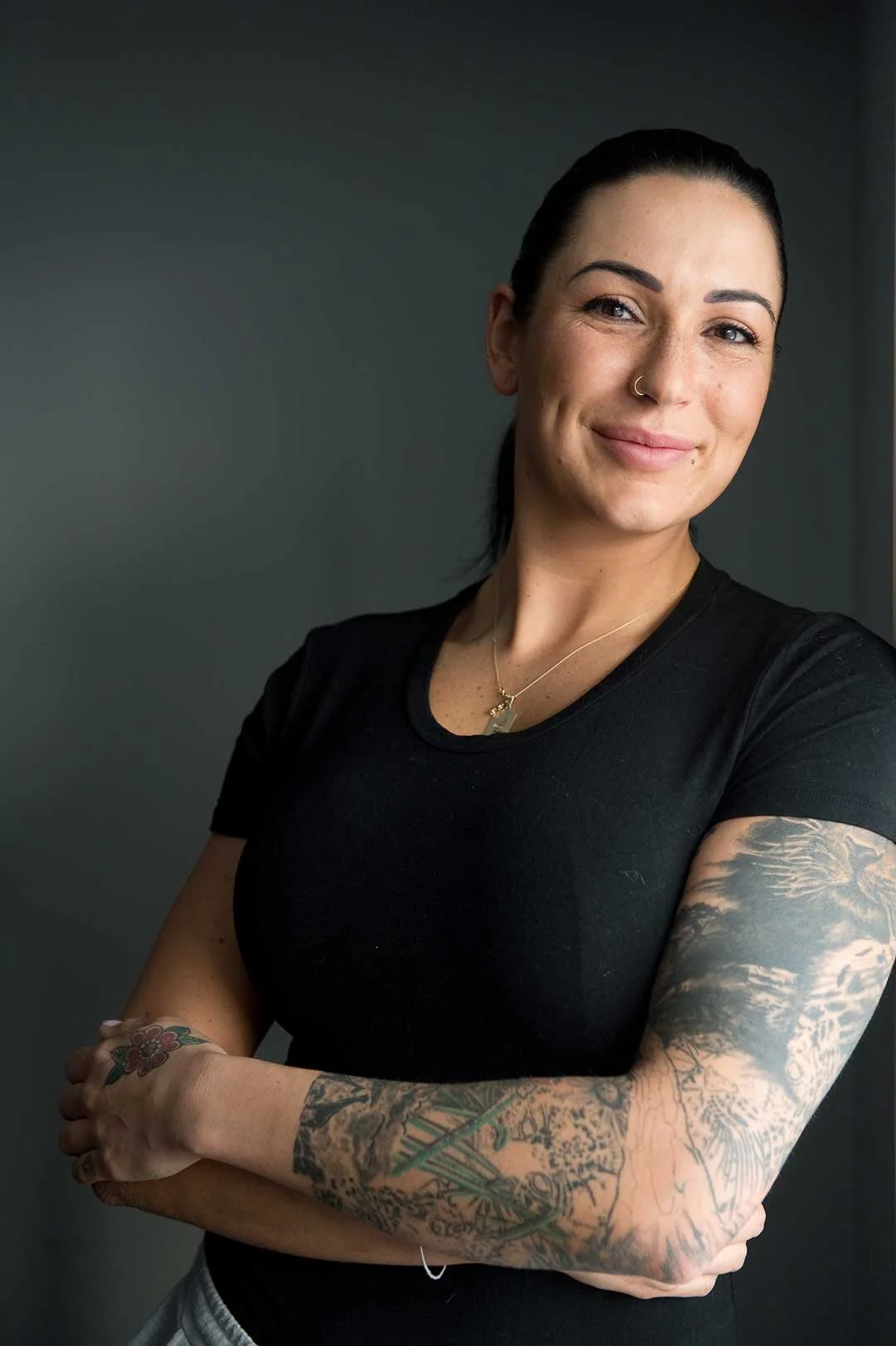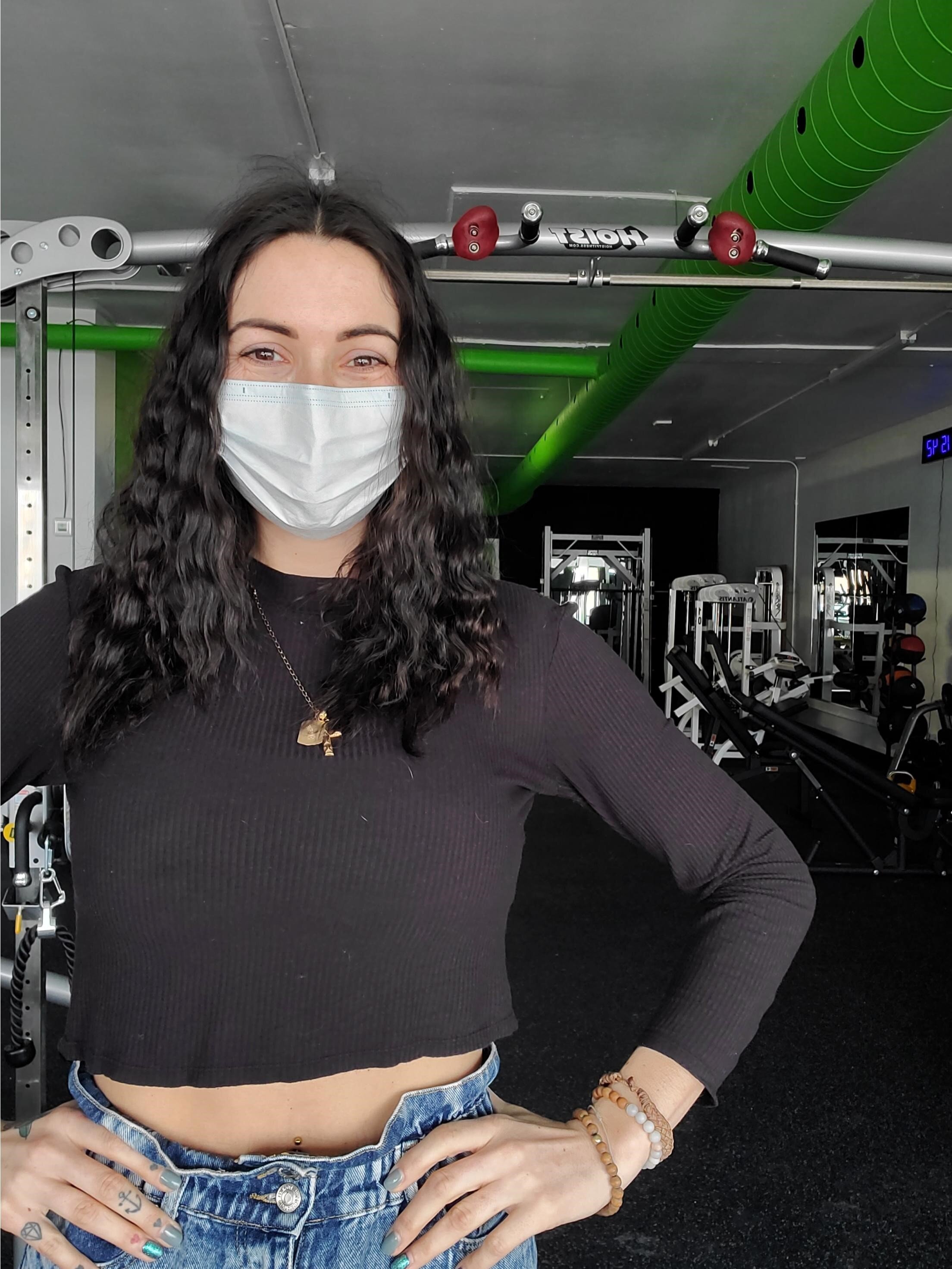Bambi Gray: Women, too
Corporal (Ret’d) Bambi Gray was born and raised in Kingston, Ontario. At 5 years old, Bambi was playing young supply technician with her father at the Princess of Wales’ Own Regiment Army Cadets Corps. By the time she turned 21, she had officially joined the Canadian Armed Forces (CAF). After successfully completing her military training, she spent her seven-year career based in Petawawa, where she was deployed twice. Her first deployment was to Poland, in 2015. This was followed by a tour in Iraq, in 2017. Bambi was released in 2018 currently operates her own gym in Amherst, Ontario, just outside of Kingston.
So, my real name is actually Bambi. I was born and raised in Kingston, Ontario, and got involved with Army Cadets at a very young age. This helped grow my personality for team building, lifestyle sports, and pretty much anything that evolved around doing things with groups of people. When I was 21 years old, I joined the military. I was very active within it: training, or volunteering for extracurriculars. I was (and still am!) always very go-go-go!
What has been your experience with concussions?
My first concussion I ever had - that I remember - wasn't military related. It was sport related. I've played baseball ever since I was a little girl. When I was in Petawawa at the age of 23, I was warming up with a buddy and we were whipping balls back and forth before the first game of the season. A friend told me that my glove was too small for the ball that we were using, but I was catching them fine so I ignored the comment. Not even 15 minutes later, we're whipping it back and forth and my glove WAS too small - I tipped the ball off my glove, and it broke my nose. So hard. I got a concussion. My nose was under my eyes and I told my teammates to “put my nose back, this is my face we are talking about!”. So my teammates sat me down and they set my nose back. It didn't hurt though. I went to the hospital after that and was told that I "gave myself a mild concussion."
That was my first experience with PTSD, and it was sport-related PTSD (not combat). To this day, I can't play baseball, if there's people playing catch beside me, it freaks me out. And I've been playing baseball ever since I was like six years old.
A few years later, in January 2017, I was getting ready to go overseas with the military. I was supporting an exercise in the woods. This means that I brought all the snowmobiles and equipment for it, so I had a massive truck to carry it all. And the truck had a C container on the back where I would attach some stairs to get in and out of it. At the top of those stairs was a door that would swing out with a railing on one side but not the other. One night I'm coming up the stairs with a bunch of stuff in my hands, and I started opening the door. Instead of taking a step back to let the door open, I don't know why but I just swung with the door and now here I am dangling seven feet in the air, with my ankles hooked onto this railing. Meanwhile, my private is in the container, looking at me, watching this whole thing. I have so much gear on and I'm dangling in the air and he's asking, "What do I do, What do I do?" I said, "I'm gonna drop. I'm just gonna drop myself, okay man?" I tried to brace for it, as much as I could. I dropped about eight feet - directly on my head.
I remember my private came down to help me up and I told him not to touch me. My neck was in so much pain. I ordered him to go get somebody. After that, things get foggy. I know I went to the hospital and then home - I remember bits and pieces. I don't remember who drove me to the hospital. I don't remember who was on the exercise with me.
I was in a neck brace for about a week, and the military tells me there's a good chance that I can't go overseas. I did not accept that decision, so I took myself to the hospital to confirm there is nothing wrong with my neck. They said no, but told me that I do have a concussion. So I asked if the neck brace could be taken off, which they did. Because in my mind, I was thinking that you can't see concussions, right? When you look at someone, you see a neck brace, you see a cast, you see physical injuries, but you don't see the mental side - you don't see the brain injury. So, the fact that I wasn't wearing a neck brace was what was important. Yet, I had a major concussion. I got to go overseas. My injury was in January, and I saw ground in June. I was one of those stupid young people that would hide injuries.
I also gave myself a concussion two months ago with a hammer while doing renovations at my house. I was rushed to the hospital because they thought that I cracked my skull. I was having brain spasms for two weeks after. I'd be playing a game, or I'd wake up in the middle of the night to this screeching pain behind my eye and in my head. It got to the point where I was slurring words, but 20 minutes later, it's gone and I feel completely fine. So I went back to the hospital and asked about it. They told me it's probably because I've had three concussions. That's a sign. Now that I’m having these spasms, I feel like I'm a delicate flower. Don't touch me!
If you knew someone in a similar situation in the military where they'd hit their head, what would you tell them?
I would tell them to take it seriously. At the end of the day, yeah, it's awesome that I have my medals but now as a 30 year old woman, it scares me regarding my head. The things that I can't remember sometimes, the way I talk or I articulate things or I don't articulate things. I know that sometimes my motor skills and my thinking capacity aren't lined up and I know that's not me. I truly believe it's attributed to the incidents that I acquired during my service. So many of the seemingly small head knocks happen, that you don't think about it. When I got hit in the head with that baseball, I went to the hospital, but then I was having beers with my buddies after the game. That isn't responsible. I would tell someone in a similar situation as me to take it seriously, because right now I'm kicking myself in the butt. As much as you can go to counseling for anger issues, or depression or do cognitive therapy; physical injuries - especially ones that you can't see - they are lifelong. And here I am at 30 years old, regretting not taking my injuries seriously.
How can the importance of your brain be emphasized in the military?
I think there needs to be more peer support. I think back in the day, you'd pay celebrities to say important messages because people listen to celebrities. And it works! So instead of celebrities, people who others will look up to. So inspiring people, or stereotypical alpha men and women, need to stand up and put their swords down and be vulnerable. Use themselves as examples and be brutally honest. Just tell their stories. Like we are doing through Project Enlist.
How have your concussions affected your life choices?
I'm very much a person with the attitude that if I think it's going to affect my career, I'm not going to bring it up. Between my concussions and other conflicts I experienced while serving, I felt like I was more devoted to the military than it was to me. It wasn't bringing any value to my life. So I decided to leave - voluntary release. And that was three years ago.
I realized that I needed to take a step back from that whole military life. It was kind of like a bad relationship; I loved it, but It didn't love me. I was just hanging around and being that crazy ex. So, I now own a fitness center in Amherstview, Ontario. It originally was supposed to be a very small 24/7, remotely run gym. That was just prior to COVID. Now my gym has moved into an in-person model with staff, so I work there the majority of the time with my mom helping and we're doing very well.





